Daily Current Affairs 21 June 2021 – Gkseries
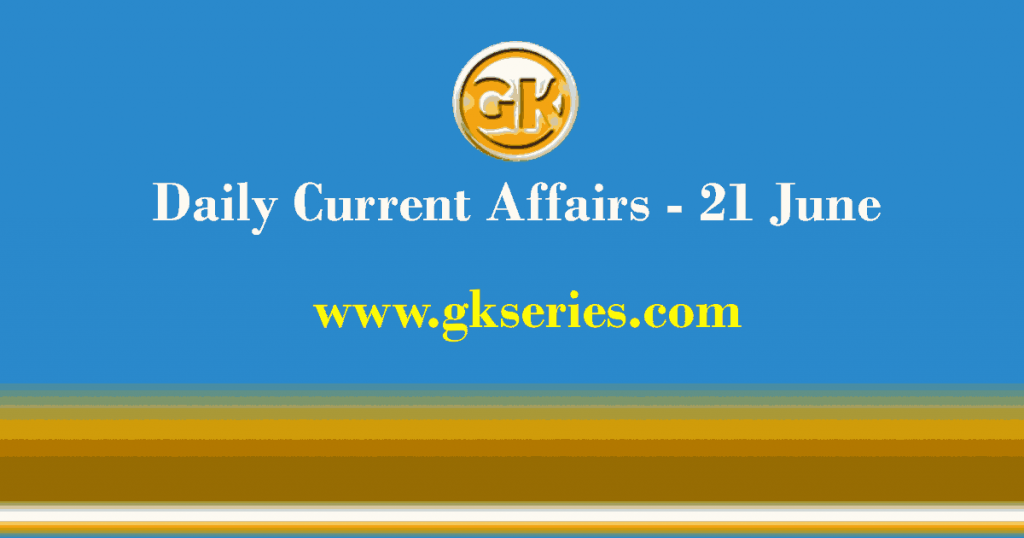
Current Affairs is the most important area in all competitive exams. But the difficulty level is very high. That’s why; many aspirants get confused, how to select Current Affairs for Preparation of Competitive Examination? In this Post, Daily Current Affairs 21 June 2021, we have tried to cover each and every point and also included all important facts from National/ International news that are useful for upcoming competitive examinations such as UPSC, SSC, Railway, State Govt. etc.
Daily Current Affairs 21 June 2021
International Day of Yoga 2021
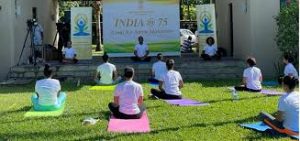
International Day of Yoga is celebrated on 21 June each year to raise awareness about the many benefits of practising Yoga for people all over the world.
This year, the theme is ‘Yoga For Wellness’, which focuses on practising Yoga for physical and mental wellbeing.
The date was chosen because June 21 is the longest day in Northern Hemisphere. The word Yoga has originated from the Sanskrit word Yuja which means ‘to join or to unite.’
The idea of International Yoga Day was conceived by PM Modi, who proposed the concept on September 27, 2014, during his speech at the UN General Assembly.
The resolution to adopt June 21 as International Yoga Day was introduced in the UN by India’s Ambassador, Ashoke Kumar Mukerji.
The resolution had received support from 177 nations, the highest number of co-sponsors for any UN Resolution. Currently, countries ranging from Canada to the USA participate in this event.
Zambia’s founding president Kenneth Kaunda Passed away
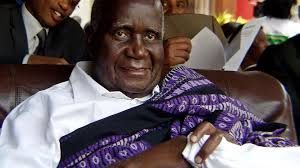
Kenneth Kaunda, the founding president of Zambia passed away recently at the age of 97.
Popularly known by his initials KK, Kaunda was nicknamed by some “Africa’s Gandhi” for his non-violent, independence-related activism in the 1960s.
Zambia is a landlocked country at the crossroads of Central, Southern and East Africa.
Its neighbors are the Democratic Republic of the Congo to the north, Tanzania to the north-east, Malawi to the east, Mozambique to the southeast, Zimbabwe and Botswana to the south, Namibia to the southwest, and Angola to the west.
The capital city of Zambia is Lusaka. The Common Market for Eastern and Southern Africa (COMESA) is headquartered in Lusaka.
India to host two day summit on Green Hydrogen Initiatives
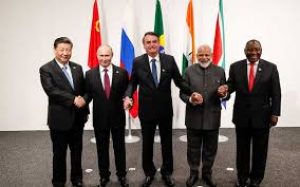
India is going to host a two day summit on Green Hydrogen Initiatives involving the BRICS nations.
The prestigious event offers a platform to share their respective Green Hydrogen initiatives and views on how to take it to the next level in their own countries.
The summit will bring the best brains, policy makers and major stakeholders from the BRICS nations deliberating and discussing at length the future of Hydrogen in the energy mix.
The summit will also witness panel discussions on ideas integrating hydrogen in overall energy policy framework by different countries.
IIT Delhi to establish transportation research and injury prevention centre
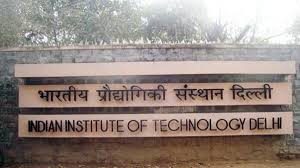
Indian Institutes of Technology, Delhi announced to establish a new centre named ‘Transportation Research and Injury Prevention Centre (TRIP-C)’ by converting the ‘Transportation Research and Injury Prevention Programme (TRIPP).
The TRIPP that has been running at the institute since 2002 as an interdisciplinary programme and founded by late Prof. Dinesh Mohan, a world-renowned expert on traffic safety will be converted to a centre.
The areas of research and study will include road planning and design interventions associated with traffic safety, road-user behaviour associated with traffic safety and sustainable transport systems and safety aspects of new vehicle technology in mixed traffic.
TRIP-C would offer academic programmes in the field of transportation and road safety to train professionals who are equipped with the skills for developing and maintaining safe transport infrastructure, including the vulnerable road users.
The new centre will offer a ‘Master of Science (MS) Research’ programme, which would train the students/ professionals in the field of the transportation safety.
Ebrahim Raisi won the Iran’s presidential election
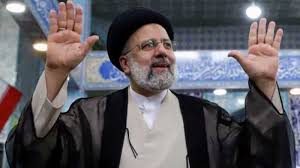
Ebrahim Raisi recently won the Iran’s Presidential election propelling the supreme leader’s protege into Tehran’s highest civilian position in a vote that appeared to see the lowest turnout in the Islamic Republic’s history.
Iran is a Middle East country. Its capital is Tehrān, a sprawling, jumbled metropolis at the southern foot of the Elburz Mountains.
Iran, which is a member of the cartel, sits upon 13% of global oil reserves. It produces over four million barrels per day, accounting for 4% of total global production.
The United States has imposed restrictions on activities with Iran under various legal authorities since 1979, following the seizure of the U.S. Embassy in Tehran.
The global dirty money watchdog Financial Action Task Force (FATF) placed Iran on its blacklist on Friday after it failed to comply with international anti-terrorism financing norms, a move that will deepen the country’s isolation from financial markets.
TRAI launched TV Channel Selector web portal

A TV Channel Selector web portal has been launched by the Telecom Regulatory Authority of India (TRAI) for consumers who could not access its mobile phone app of the same name due to lack of a smartphone.
The portal has all the existing features of the app. With the help of this portal subscribers can choose a preferred channel of interest and remove the unwarranted. The portal also allows the subscriber to modify existing subscriptions.
Telecom Regulatory Authority of India (TRAI), in March 2017, notified the New Regulatory Framework for Broadcasting and Cable services. The new framework came into effect on 29th December 2018.
The new framework promotes consumer choice and enables subscribers to select television channels they want to watch.
Government amended Cable Television Network Rules
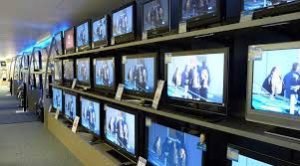
The Government of India issued a notification amending the Cable Television Network Rules, 1994 thereby providing a statutory mechanism for redressal of grievances/complaints of citizens relating to content broadcast by television channels in accordance with the provisions of the Cable Television Network Act, 1995.
The Cable Television Networks (Amendment) Rules, 2021, provides for a three-level grievance redressal mechanism which are self-regulation by broadcasters, self-regulation by the self-regulating bodies of the broadcasters, and oversight by an Inter-Departmental Committee at the level of the Centre.
A viewer could file a complaint directly to the broadcaster, who would have to respond within 15 days. If the complainant was not satisfied with the response, the complaint could be escalated to the self-regulating bodies set up by TV channels, which should deal with the case in 60 days.
If the complainant is not satisfied with the decision of the self-regulating body, he may, within 15 days of such decision, prefer an appeal to the Central government for its consideration under the Oversight Mechanism.
Such appeals would be dealt with by the Inter-Departmental Committee set up under the Oversight Mechanism.
The Committee would be headed by the Additional Secretary in the Ministry of Information and Broadcasting, and have members from the Ministry of Women and Child Development, Home Ministry, Ministry of Electronics and Information Technology, Ministry of External Affairs, Ministry of Defence, and representatives of other Ministries and organisations, including experts, as the Centre may decide.
Maiden IN – EUNAVFOR Joint Naval Exercise in the Gulf of Aden

Indian Naval Ship Trikand, mission deployed for Anti-Piracy Operations, is participating in the maiden IN – EUNAVFOR Joint Naval Exercise in the Gulf of Aden also known as the Gulf of Berbera.
Gulf of Aden is a deepwater gulf between Yemen to the north, the Arabian Sea to the east, Djibouti to the west, and the Guardafui Channel, Socotra (Yemen), and Somalia to the south.
In the northwest, it connects with the Red Sea through the Bab-el-Mandeb strait, and it connects with the Arabian Sea to the east. To the west, it narrows into the Gulf of Tadjoura in Djibouti.
The waterway is part of the important Suez Canal shipping route between the Mediterranean Sea and the Arabian Sea in the Indian Ocean, with 21,000 ships crossing the gulf annually.
Important cities along the Gulf of Aden include the namesake Aden in Yemen. Other Yemeni cities are Zinjibar, Shuqrah, Ahwar, Balhaf, Mukalla. On the Horn of Africa side, the cities of Djibouti, Berbera, and Bosaso.
The role of animal serum in making of vaccines
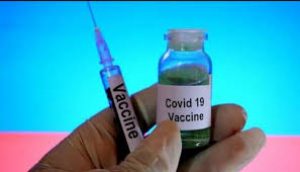
The Central Government of India recently issued a clarification stating that Covaxin, the Covid-19 vaccine developed by Hyderabad-based Bharat Biotech, did not contain the serum of a newborn calf.
This was in response to discussions on the social media about the presence of calf serum in Covaxin.
In the clarification, the government reiterated the well-known use of calf serum, as also serum extracted from other animals, in the development of vaccines.
These are needed to grow the disease-causing virus, bacteria or other pathogens in the laboratory, but do not themselves become an ingredient of the vaccine.
According to the website of the Food and Drug Administration of the United States, cow components are used mainly because cows are large animals, easily available, and rich in some of the useful chemicals and enzymes.
Historically, animal serum has been used in the development of vaccines in other ways as well.
The use of horse serum as an antibody supplement in diphtheria vaccine is more than 100 years old. Horses used to be injected with small doses of bacteria that caused diphtheria so that they could develop antibodies.
Nandigram poll defeat challenges by Mamata Banerjee in Calcutta HC
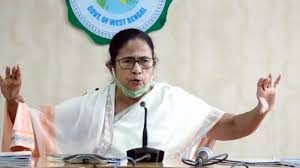
West Bengal Chief minister Mamata Banerjee recently moved the Calcutta high court to challenging her Nandigram poll defeat by a margin of 1,956 votes to BJP candidate Suvendu Adhikari.
The Election Commission’s role ends with the declaration of results, that is once the Returning Officer has signed the final result sheet (Form 20).
After that, an election petition is the only legal remedy available to a voter or a candidate who believes there has been malpractice in an election.
Such a person can challenge the result through an election petition submitted to the High Court of the state in which the constituency is located.
Such a petition has to be filed within 45 days from the date of the poll results; nothing is entertained by courts after that.
Although the Representative of the People Act of 1951 suggests that the High Court should try to conclude the trial within six months, it usually drags on for much longer, even years.
ADB loan to Social development programmes in Bangladesh
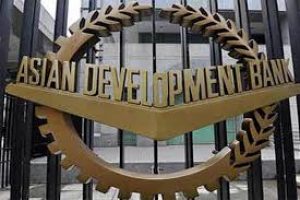
The Asian Development Bank (ADB) recently approved a USD 250 million loan to Bangladesh to help finance reforms.
It is aimed at improving the inclusiveness and responsiveness of the country’s social development and resilience program.
The Strengthening Social Resilience Program will include institutional and policy reforms to address cross-sector issues of social development in Bangladesh.
These include improving the coverage and efficiency of the social protection system through improving the administrative efficiency of social protection management.
The program will expand its outreach to vulnerable women by increasing the coverage of both the old age allowance for women over 62 and the allowance for widowed, deserted, and destitute women in 150 sub-district units or upazilas.
Culture Ministry organised Flag Satyagraha in Madhya Pradesh
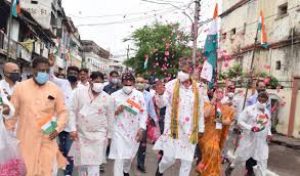
The programme was Union Culture Ministry organised and observe the Flag Satyagraha in Jabalpur, Madhya Pradesh with IGNCA as part of Azadi Ka Amrit Mahotsav commemorate 75 years of Country’s independence.
The program started with a cultural satyagraha padyatra from Kamaniya Gate in the city to Gandhi Bhawan, the Town Hall complex.
In India, Flag Satyagraha is a campaign of peaceful civil disobedience during the Indian independence movement that focused on exercising the right and freedom to hoist the nationalist flag and challenge the legitimacy of the British Rule in India through the defiance of laws prohibiting the hoisting of nationalist flags and restricting civil freedoms.
Flag Satyagrahas were conducted most notably in the city of Jabalpur and Nagpur in 1923 but also in many other parts of India.
On 31 December 1929 the Congress concluded the adoption of the Purna Swaraj declaration of independence with Congress President Jawaharlal Nehru hoisting the nationalist flag along the banks of the Ravi River in Lahore.
Other notable flag satyagrahas were organised in Mysore (now in Karnataka) in 1938 known as Shivapur Dhwaja Satyagraha, under leadership of T.Siddalingaih president of Mysore Congress.
QCI launched Indian Certification of Medical Devices Plus Scheme
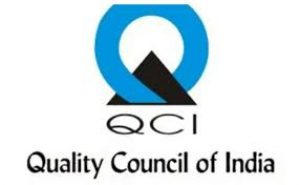
The Quality Council of India (QCI), and the Association of Indian Manufacturers of Medical Devices (AiMeD) have added further features to the ICMED the Scheme that had been launched for Certification of Medical Devices in 2016.
The ICMED 13485 PLUS, as the new scheme has been christened, will undertake verification of the quality, safety and efficacy of medical devices. The ICMED 13485 PLUS Scheme was launched digitally.
Quality Council of India (QCI) was set up in 1997 jointly by the Government of India and the Indian Industry represented by the three premier industry associations i.e. ASSOCHAM, CII and FICCI, to establish and operate national accreditation structure.
The Department of Industrial Policy & Promotion, Ministry of Commerce & Industry, is the nodal ministry for QCI.
The Council is independent and works under the directions of its Governing Body (GB) having equal representation of government, industry and industry associations. It does not get funded by the government and is a self-sustaining non-profit organization with its own Memorandum of Association (MOA) and Rules.
Arjun Munda inaugurated the Second National Sickle Cell Conclave
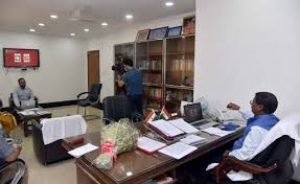
Shri Arjun Munda, Minister of Tribal Affairs inaugurated the Second National Sickle Cell Conclave on ‘Sickle Cell Disease’. This year’s event is being held after last year’s successful roll out of a National Webinar on Sickle Cell Disease.
Sickle cell disease (SCD), which is the most prevalent inherited blood disorder, is widespread amongst many tribal population groups in India, posing a considerable health burden in several states.
While there are several cost-effective interventions, which have dramatically reduced morbidity and mortality from SCD in India, the access to care for SCD in the tribal regions of India is limited.
The disease in India is prevalent predominantly in Jharkhand, Maharashtra, Madhya Pradesh, Chhattisgarh, western Odisha, Eastern Gujarat and in pockets of the Nilgiri Hills in north Tamil Nadu and Kerala.
World Sickle Cell Day 2021
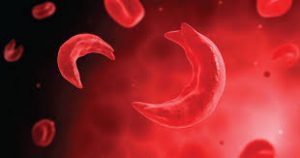
World Sickle Cell Day is observed on 19th June 2021 every year to raise awareness about its treatment measures and to get effective control over this disease across the world.
The World Sickle Cell Day 2021 Theme is ‘Shine the Light on Sickle Cell’. The day is observed to cover all the curable standards through the fast awareness program to take this genetic health condition under control across the world.
A variety of promotional activities will be conducted by the WHO (World Health Organization) on the worldwide level to fix this hemoglobin dysfunction issue.
In 2008, the United Nations General Assembly created the World Sickle Cell Day to raise awareness among the peoples about sickle cell disease and its treatment methods.
On 19th June of 2009, the day was first observed. According to the reports, in Africa, nearly 1000 babies are taking birth every day having Sickle Cell Disease and getting die up to five years of age.
Govt to establishment of five Divyangta Khel Kendras in country
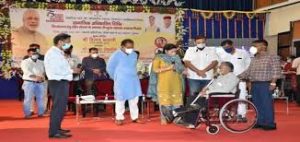
The government of India recently announced the establishment of five Divyangta Khel Kendras in different parts of the country.
The decision has been taken looking at the interest towards the sports among the Divyangjan and their good performance in Paralympics.
Through sport, persons with disabilities acquire vital social skills, develop independence, and become empowered to act as agents of change.
Sport is also well-suited to reducing dependence and developing greater independence by helping persons with disabilities to become physically and mentally stronger.
In the year 2016, the Right to Persons with Disabilities Act was brought in, which not only provided more security, but also ensures and protects the fundamental rights of the person with disabilities across the nation.